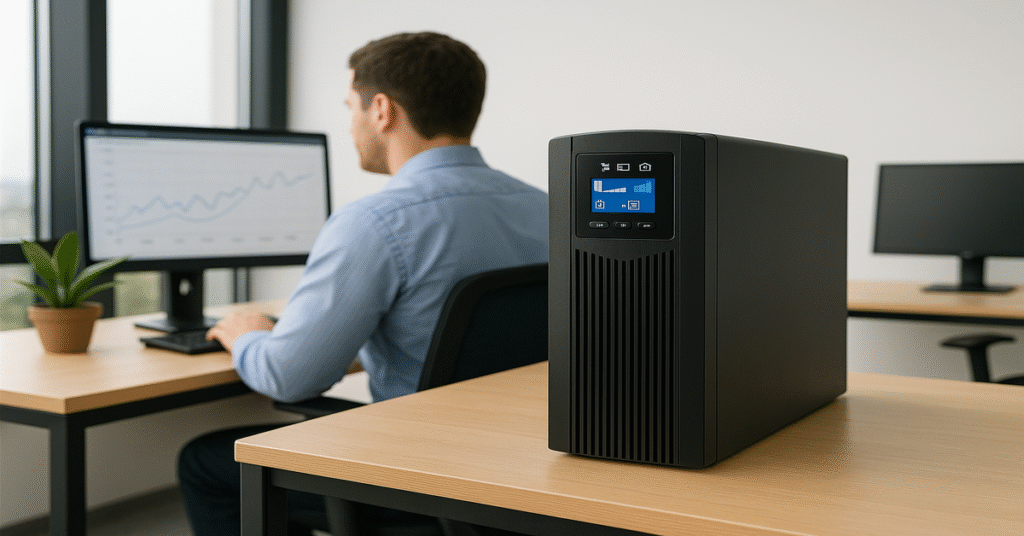Power disruptions can spell big trouble for your business operations in this digital age. An uninterruptible power system can ensure stable power for critical areas during outages. This is especially important in industries or enterprises where downtime can result in cybersecurity risks, financial losses, or physical safety issues.
How does an uninterruptible power supply (UPS) system work?
When the main power supply is unavailable, this electrical device gives backup power to a computer or other machines. It helps businesses continue operating so people can save their work, shut down systems properly, or switch to alternative power sources.
What are the different kinds of UPS systems out there?
Standby: This gives basic protection against power surges or outages.
Line-interactive: This provides better protection by correcting any minor fluctuations in power.
Online: This gives the greatest protection, as it is known to double-convert to provide ample power.
How do UPS systems help with business continuity?
- They prevent any loss of data. Your data can get lost or corrupted when you fail to save your work because of unexpected power outages. A UPS provides some power, so you have time to store digital files and turn off machines properly.
- They protect your equipment. Networking devices, servers, and other sensitive equipment can get damaged due to power surges. A UPS can serve as a buffer, preventing damage and extending the life of your machines and other assets.
- They keep operations efficient. Even the shortest power interruptions can interrupt your workflow, especially in areas that need continuous operations. A UPS can keep your critical systems online so your team remains productive and there is minimal downtime.
How do you integrate UPS into business continuity?
- Start with assessing your power needs. Find out what is required for your essential systems to stay on, so you know what kind of UPS you need. Compute how much the total wattage of any connected devices is and how long you want them to keep running, even as you track power outages happening.
- Choose the right type of UPS system. Pick a UPS that matches your power needs as you assessed in the previous step. Consider factors like the scalability, battery life, and type, along with extra features like battery health monitoring and surge protection.
Make the process of finding the right UPS for your business a whole lot easier by contacting us at UPS Solutions today. Enquire directly with our representatives or book a site inspection so you know what kind of design and engineering changes need to be done onsit







